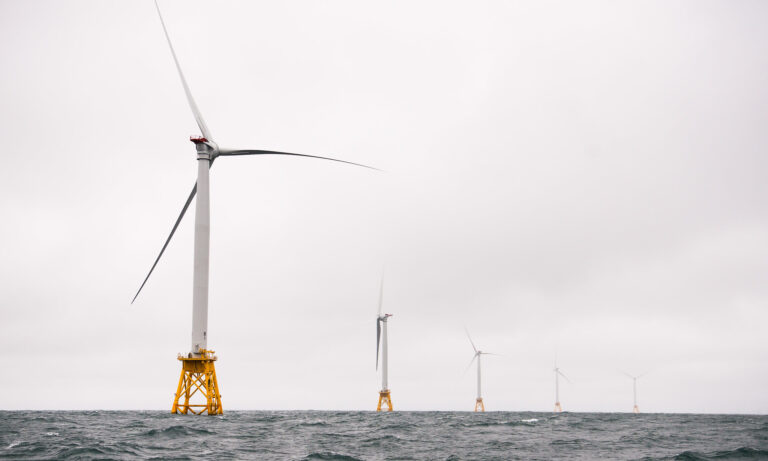A Tale of a CEFC Acquisition in the Czech Republic

After the Chinese company CEFC made numerous acquisitions in the Czech Republic in 2016, it was widely assumed that the acquired companies would make a fresh start. The vision of cash influx and modernization of production somewhat compensated for the Czech disappointment over the lack of greenfield investments. One of those lucky businesses with new owners and alleged new opportunities was the engineering company TS Plzeň (a subsidiary of ŽĎAS) – one of the largest engineering factories in the Czech Republic, focusing on production in fields of metallurgy, rubber, and sugar industry.
Just last year, TS Plzeň’s representatives were boasting how successful the factory had become in scoring new orders under the Chinese management. Then abruptly this year, TS Plzeň let go 60 employees out of the 220 total, including its production manager. Members of the union, who announced the first strike alert in the company this May, warned in their interview with lidovky.cz that the factory was being shut down.
According to Ervín Eger, the chairman of the unions, the company first experienced troubles right after the acquisition by CEFC. The year prior, TS Plzeň swept up a profit of 1,2 million EUR, having contracts with customers around the globe, including India, Pakistan and France. But the supply chain apparently didn’t extend to China. Instead, during the transition under CEFC, the company’s profits fell nearly by half. Last year, the business was suddenly at a loss of 1,37 million EUR.
Now the company is clearing out. That is despite the fact that the company allegedly had a buyer interested in purchase, but the Chinese state-owned CITIC (that took over CEFC’s share after CEFC collapsed financially in 2018) is selling the equipment instead. Furthermore – according to local sources quoted by lidovky.cz – it also took away the company’s archive, containing technical drawings, registered patents, and other operation-related documents.
According to Eger, CEFC and its successor CITIC are responsible for the TS Plzeň’s fall as they allegedly did not accommodate the product prices to a tough macroeconomic situation, unlike other companies in the business, which led to a significant loss. “We are not competitive. The management says our prices are about one-third higher when compared to our competitors,” said Eger in his interview with lidovky.cz. He is convinced that the Chinese companies planned to close the factory all along.
Where Lies the Truth?
However, the entire story was denied by Pavel Cesnek, the CEO of ŽĎAS (TS Plzeň’s mother company) in his interview for Týden magazine a week after he had ignored requests for comment for the original story in lidovky. “In the past two years, there have been massive investments reaching up to 460 million Czech crowns. Today, even the Chinese investor supports the development of its mother company ŽĎAS,” said Cesnek, although he did not specify how much of the investment was coming from CITIC, and if any of it has ever come to TS Plzeň.
Cesnek admitted that the company is experiencing hardships, but he contradicted Eger in the reasons why. He attributed the losses to the “past business activities” of TS Plzeň and “the loss of multi-billion contracts”. Now, the company is going to merge with ŽĎAS and only about 10% of its employees will keep their jobs.
The ŽĎAS CEO also disputed the claim about a ‘stolen’ archive. “I can assure you that the archive of TS Plzeň is not in China, as it was reported somewhere,” he said in the interview. “I go to China very often and their [Chinese] industry is much more developed. They are not in need of any technology that TS Plzeň has,” he added. According to Týden’s report, all the archives are still where they should be.
Too Many Possible Conclusions
If, for a brief moment, we assume Eger’s allegations are true, the case might point at Chinese business practices as reported elsewhere in the world. Ding Peng, a professor from Cleveland University, argues in his 2018 analysis that Chinese companies prefer mergers and acquisitions as they allow them to gain strategic assets in order to improve their own businesses’ competitiveness, or to effectively escape from the home country institutional constraints. Despite this strategy, achieving post-M&A profit overseas was difficult for China in the past.
Hence, one possible explanation of the TS Plzeň’s abrupt decline – based on Ding’s theory – could be that CEFC acquired ŽĎAS without any serious plan to develop the business. Instead, it may have wanted to acquire its strategic assets – the company’s intellectual property and registered patents – without any intention to invest further into the business, as international acquisitions have proven to be risky for China’s companies in the past.
The second possibility – perhaps the more realistic one – links the decline of TS Plzeň to the fate of CEFC which had to be bailed out after the reports that the company was based on a Ponzi scheme and after the subsequent collapse of its operations. It could be the financial problems of CEFC and a subsequent take-over by CITIC that resulted in the collapse of the newly acquired factory, as the new owner(s) likely did not have the resources and/or ambition to continue the business.
If the information that the archive was taken away proves true (although it’s the weakest link in the story and it’s based on anonymous sources), opting to take the patents and drawings, and then selling the machinery to minimize losses instead of just selling the company to another buyer, it signals that the intellectual property has been prioritized over financial benefits. That could prove that the Chinese state-owned companies follow a strategy of hollowing out the intellectual property of the Czech company with no intention of developing it (until the business is profitable beyond any doubt). However, it could also mean that CEFC has been simply unsuccessful in its pursuit of strategic assets and CITIC decided to take the most valuable asset out of that situation.
However, too much remains unclear about the case. The accusations against CITIC could prove to be wrong, just as Cesnek points out in his interview. In that case, the TS Plzeň issue might be telling of just one thing: a certain Czech Republic’s bias against China, which has been found in both media discourse analysis and parliament discourse analysis conducted by ChinfluenCE.
Yet, it is important to note that the Czech cautious approach towards the remnants of the CEFC’s investments is not baseless. It was the CEFC’s Ponzi scheme acquisitions, altogether with the strange case of CEFC’s CEO Ye Jianming, who became Czech president’s advisor and then disappeared in China without a trace, which discredited China’s business in the Czech Republic and more broadly Central Europe.
Written by
Alžběta Bajerová
AlbajerovaAlžběta Bajerová is a Research Fellow at the Association for International Affairs. She graduated from Master’s program Security and Strategic Studies at Faculty of Social Studies of Masaryk University, completed a study exchange programme at National Taiwan University, and gained work experience through internships at the Embassy of the Czech Republic in China, NATO CCD Centre of Excellence, or National Cyber and Information Security Agency (NCISA).


